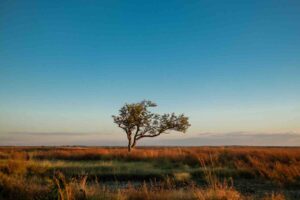“There are years that ask questions and years that answer” – Zora Neale Hurston
2015 and 2017 were those years respectively.
Years that confer questions
It was April 14, 2015 and all I remember about that day were the unimportant things. I remember it was a Tuesday. I could close my eyes today and retrace the layout of the Longhorn Steakhouse in Orlando. I’ll never forget the way my knees literally knocked together then gave out. I’ll always remember the way the faces on the unsuspecting diners so effortlessly twisted between terror, disgust, and sympathy as they looked (and tried not to look) at me screaming the words “HE’S DEAD?? HE’S DEAD!? HE’S DEAD!!” at my iPhone.
Just like that, my brother was gone.
Before I had a chance to protest, or offer a prayer for God to heal or fix or repair or change… or whatever we expected Him to do in those times, he was gone. And I was left holding nothing but the anxiety that comes with knowing I would have to put my mom, dad, brothers and sisters (and all the unsuspecting bystanders in their orbit) through what I just went through as I relayed the news that my brother was dead.
April 14th was the worst day of my life. A day I knew would never be redeemed. For all the things I remember about that day, the irony is, I don’t remember much of the next two years.
I buried my brother that April, and then planted a church six weeks later, a church in a part of town not many people wanted to go to at the time. We experienced lots of similar deaths that first year. One of the only things I remember was dreading stepping into the pulpit, crying through more sermons that I can count, putting my wife through the wringer, and ultimately feeling like a fraud because of how hard it was to believe the good things I was preaching about God.
His wisdom, His kindness, His grace, His care, His compassion.
My faith crumbled quicker than I ever imagined, and stayed in pieces for longer that I’d ever care to admit. One of my only pieces of consolation during that time was this CS Lewis quote I read in A Grief Observed as he was reflecting on the death of his wife.
“God has not been trying an experiment on my faith or love in order to find out their quality. He knew it already. It was I who didn’t. In this trial He makes us occupy the dock, the witness box, and the bench all at once. He always knew that my temple was a house of cards. His only way of making me realize the fact was to knock it down.”
– CS Lewis, A Grief Observed
In that quote I found an ounce of hope, being reminded that my shattered faith was not my fault, nor was it irreparable. It was something that I wasn’t equipped to put back together. If this issue was going to be solved, it would have to be him. And all I could do was wait on him to do it.
The next two years….were a blur.
Years that provide answers
Two years to the date, things cleared up a little bit.
It was April 14th, 2017. It was a Friday. I was still pastoring the Atlanta church we started a few years prior, but on this Friday I was in the NICU in Columbus, GA. After a decade of praying for children, God had answered and my daughter was born about a week before this Good Friday. She was born premature. She couldn’t breathe on her own (she had a breathing machine). She couldn’t eat on her own. Tubes were everywhere. She couldn’t regulate her body temperature, so she had to spend 22 hours a day in an incubator.

It’s funny the things you remember. I’m a terrible singer and think of myself as tone deaf, but I still remember the keys that all the beeps and monitors were in. I’ll never forget seeing my daughter’s first smile through the smudged glass of the incubator. I remember how uncomfortable it was to hold her with her breathing tube constantly getting in the way. I was always mindful of my embrace of her because I didn’t want to mess up the tube.
One thing I’ll never forget is what happened on that Friday. I had to drive back to Atlanta to preach the Good Friday service, so my wife let me have all the skin to skin time that day. I remember holding my daughter and reading to her the chapter on adoption in JI Packer’s book, Knowing God. Even while holding my daughter in my hands, all I could think about was death.
It was the 2 year anniversary of my brother’s death. And I was grieving the fact he and my daughter would never meet.
It was the 2000-ish year anniversary of Jesus’ death for us.
And this year it hit differently.
And then the doctor came and out of nowhere snatched my daughter out of my hands. Before I had a chance to protest, or offer a prayer for God to heal or fix or repair or change or whatever we expected him to do in those times, she was gone. Out of my arms. By the time I turned around, the doctor placed her back into my arms and she was noticeably lighter. My confusion evaporated as the doctor whispered the words in my ear, “today’s the day she breathes on her own.”
He had only removed her from my arms to take out her breathing machine. She no longer needed to live life hindered, she could breathe on her own. Before I knew it, we were reunited with no more tubes standing between us.
In an instant, my thoughts of April 14th, God’s goodness, grief, and death changed forever. Tears of sorrow and tears of joy both channeled into the corners of my mouth and I realized they both tasted the same.
In an instant, grief and hope, joy and sorrow intersected. I learned that grief and hope aren’t parallel streets that we travel down based on life’s circumstances. They intersect. When God guides us down paths of grief, He isn’t leading us away from hope. He’s trying to lead us to the point where those streets intersect, so that we never believe the lie that our joy is tied to our circumstances.
When God guides us down paths of grief, He isn’t leading us away from hope. He’s trying to lead us to the point where those streets intersect, so that we never believe the lie that our joy is tied to our circumstances.
Grief doesn’t need to be avoided, we need to lean into it. And He stays with us, while our faith is shattered in pieces, until we reach the point where it begins to make sense.
GRIEF A SOLID FOG
Grief is solid.
Like fog is solid.
Thick fog has the opacity slider turned all the way up. It clouds our vision as quickly as it appears.
The fog of grief is solid in the sense that it’s impossible to see through. Grief has this way of convincing us that because we can’t see through it, we can’t step through it. In other words, grief only really seems like an obstacle because it’s opaque. We imagine we have to STOP moving forward because our eyes tell us we’ve reached a SOLID WALL.
But that’s not true.
You don’t need to go around it if you have somebody that can guide you through it.
Remembering the resurrection is the reality that helps us navigate through the thickest fog. In the resurrection we are provided with the truth that death isn’t a destination, but a detour.
Grief has this way of convincing us that because we can’t see through it, we can’t step through it.
At the center, Christianity is not a list of rules, but a single earth-shattering, destiny-changing event. 2000 years ago, Jesus, a man with very unimpressive earthly origins, claimed to have gotten up from the grave. And a group of obscure, uneducated, marginalized people, having witnessed it, changed the course of history.
The way they dealt with life, death, and suffering (not just their own, but human suffering across pandemics, poverty, abandoned kids, etc) was compelling. Tragedy ruined a lot of people. But they lived with a different sentiment: Tragedy doesn’t ruin anybody. Hopelessness does.
And it is absolutely amazing how much hope you can draw from the well of resurrection. They set their hopes on a man who went six feet deep, buried as deep as everybody else’s hopes and dreams, but He got up.
He GOT up. It’s already happened. It’s old news.
He got UP, above all our doubts and fears and anxieties and worries.
Not only did He get up, but he pronounced that this event would be the source of their hope. So in one sense, He’s the only person that’s gone through the solid fog of death to the other side and offered to come and take us all by the hand to help us navigate through death. His death for us was one of a kind—never to be reproduced.
But His resurrection was something different. It was the first of its kind, a trailblazer who went down a path that He’s paved for us to follow. His immediate followers navigated through death and grief, not just in a way that other people wouldn’t, but in a way that they couldn’t.
This is where my faith rests and the reason why I’ve thought it would be worth my time to talk about grief, hope and their intersection.
As a follower of Jesus, I’ve learned that I can feel hopeless. My feelings are REAL. My tense shoulders, pillows and sheets watered by night sweats prove it. However, I’ve also learned that even though I can feel hopeless, I can never be hopeless.
If Jesus really went to the grave (the most HOPELESS place we know of in this life) and it was only a FOG (solid to the eyes but not to the body), then even though I can feel hopeless, I can never actually be hopeless.
Although my feelings are real, my feelings aren’t REALITY!
“If the resurrection is true, then everything’s going to be alright.” – Tim Keller




